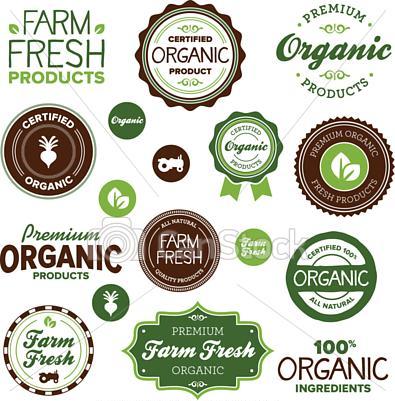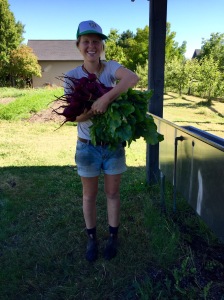We are considering if it is worthwhile to obtain organic certification for our small farm. Our practices already meet organic standards so it’s just a matter of filling out the paperwork and handing over the money. The current state of organics makes us think twice about paying for the privilege to use the label.
I recently read that many people who prefer organic products don’t have any idea what the organic certification actually means. The consumer attaches whatever benefit they want to the product, be it higher nutritional quality, more humane practices or minimal environmental impact. This lack of knowledge is not surprising if you consider the history of the label and recognize the tension between organics as a movement and organics as an industry.
The beginning of the modern organic movement is often credited to the writings of Sir Albert Howard in the 1930’s. He observed traditional Indian farming systems that focused on improving the soil with green manure and compost. Over time, especially in the back-to-the-land movement of the 1970’s, this sort of farming developed into a quasi-religious ethic that rebelled against industrial agriculture and consumer capitalism.
Organic agriculture was not standardized until 1990 when congress passed the Organic Foods Production Act. Since then, if a farm grosses more then $5000 per year they must be certified by an approved agency to use the word “organic.” Sir Albert Howard would be quite surprised at the meteoric rise in sales of organic products since then. In 2016 the market for organic foods was $47 Billion, more then double what it was in 2006.

The rise in demand caused the organic movement, which was based on a value framework, to function as an industry that aims to maximize profit and efficiency. This tension creates the conditions for oddities like organic Gatorade, scandals of fraudulently organic soybean shipments from Turkey, fights between Amish dairy farmers and organic mega dairies and the Amazon purchase of Whole Foods.
In this landscape it may not make sense for a small farm to buy rights to the organic label. Consumers are likely to hold onto an idealized concept of what an organic product means to them, which may not reflect reality. With organics seemingly trending towards big industry, it’s time for consumers to take responsibility for labels on their food and small farms to find a better way convey their value.

